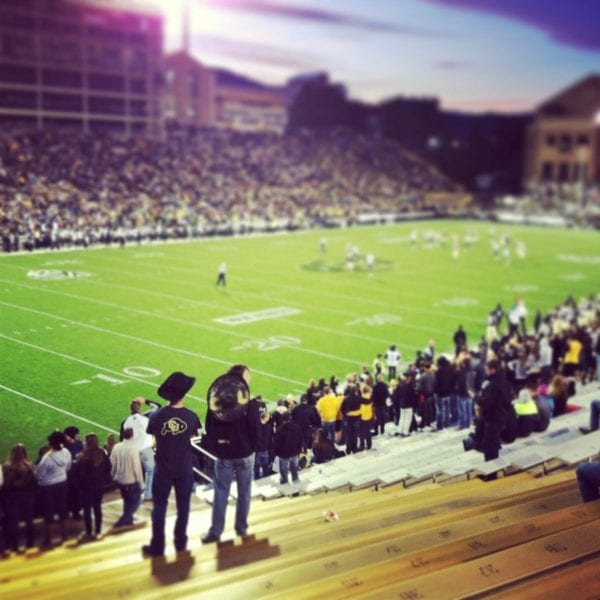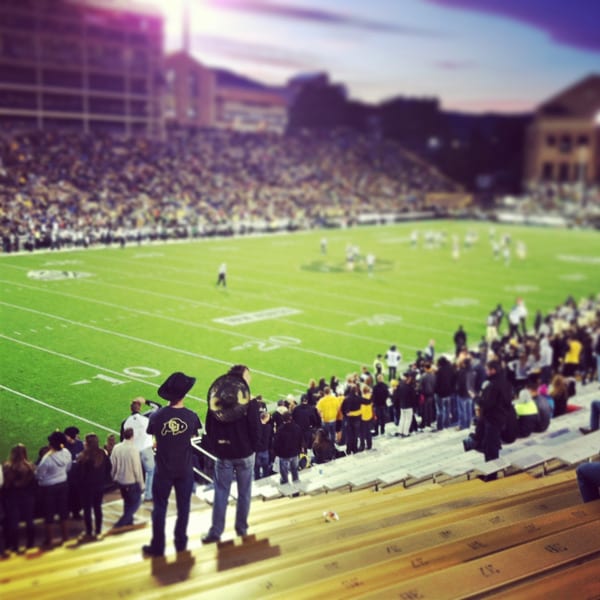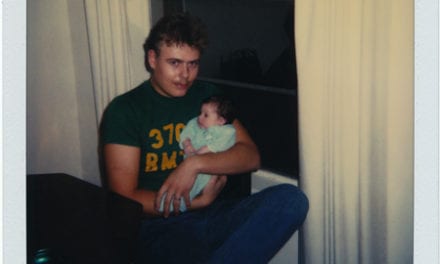There are lots of problems with professional sports. The sheer volume of attention and money we pour into them instead of into social issues, for one. The career-ending, life-diminishing injuries suffered by the players, for another. The massively inflated egos, sure.
But what got me watching sports and kept me watching were the stories.
Sports are serials, they’re infinitely recurring shows with a rotating cast of instantly recognizable characters. There’s the scrappy hero, the lone maverick, the brooding artist, the roughneck goon. There’s the cocky cowboy, the artful dodger, the proud loudmouth, the pretty boy.
And there’s always the guy you love to hate.
Every story needs a villain, and I know mine. The captain of the NHL’s Pittsburgh Penguins, Sidney Crosby, is my favorite villain, and for no good reason, either. Actually, the reason sort of goes back to the 2004 and 2005 drafts, when Alexander Ovechkin and Sidney Crosby took their respective turns being hyped as the league’s biggest, brightest prospects. Crosby was billed as the clean-cut, measured, respectful Canadian kid, and Ovechkin was the unruly, impassioned, showboating Russian. I picked Ovechkin’s story over Crosby’s and stuck with my choice to this day.
The thing about sports, though, is that you don’t honestly know the players. You don’t know any of these guys on any of these teams beyond what character roles, what stories, the league and your own wild imagination have assigned to them. Sometimes you learn things about their personal lives that you’d rather not know, and you don’t know what to do with that information, and you ignore it so that the preferred narrative can stagger on unimpeded.
The tendency to overlook a celebrity’s actions does not stop with sports, yeah?
Some things I know about Peyton Manning, Denver Broncos quarterback, is that he’s notably religious, enthusiastically supportive of Republican candidates, and deeply invested in Papa John’s franchises — even appearing in commercials alongside their anti-Obamacare CEO and namesake.
I don’t like that Peyton Manning story very much. I prefer the story where he barely knows how to dress himself. I prefer the story behind the obscure film of goofy, smushy-faced Manning, back when he was with the Colts, standing on the sidelines by the Gatorade table chatting up two preteen boys who were desperately trying to ignore him. “Mmm, this is some good stuff,” he said, gulping down neon liquid from a plastic cup. “It doesn’t usually have flavor but it does today. Did y’all fix this y’allselves? Did y’all make this?” I prefer the story where Manning wears khakis and drives Buicks and has an unwavering, singularly obsessed, maniacal devotion to analyzing and unpacking the mechanics and variables of his game. “If he hadn’t made it in football, Peyton Manning would be a high school AP chemistry teacher,” my best friend observed, and I believe she’s right.
If this was a world where pro players lived next door and not inside remote, heavily gated mansions; if we pretended that it was completely feasible to regularly bump into our sports stars on the way to work and in line at the deli, I doubt we’d like them nearly as much. Peyton Manning and I, for example, could never develop a relationship beyond uncomfortably extreme politeness. We know this, deep down, about any of our public figures. But somehow we’re invested in their stories anyway.
Because the stories are actually about us.
/////
I’ve never had a stake in any Superbowl game before. Ever. Maybe that one time I threw a dollar on a square in a betting pool and ended up taking home the whole pot ($50!). But even with money at stake, I didn’t particularly care about the teams. Sports were something that happened in and to other cities. I was just in it for the food, booze, and camaraderie.
And then I moved to Denver. And I watched an entire football season of record-breaking performances from the hometown Broncos. And it was hard not to like that, it was hard not to feel good about that. Everywhere I went, people were wearing orange and blue. People were happy. By osmosis, I was happy. I became invested in something that objectively did not matter. Without realizing it, a dumb sport was becoming part of my personal story.
And my story became, for a few hours on a Sunday evening, the story of the Broncos. And I lost. Man, it wasn’t even close. I had to walk away. I stopped watching the game. I went to eat a taco, to play some cards in another room. I couldn’t meet my own gaze in the bathroom mirror.
After it was over, to distract myself, I scrolled through my social media feeds. What I read and saw were like knives to the heart, like kicks when I was already on the ground. No one liked me, that much was clear. People I thought were my friends had turned against me. What’s more, they were mocking me. I couldn’t believe what they were saying RIGHT IN FRONT OF ME. Didn’t they know I could hear them?
I saw some guy trying to take a photo of the word “loser” next to Peyton Manning’s face. I saw a Buzzfeed article passed around about “20 Times Peyton Manning Looked Super Duper Sad.” I didn’t see Peyton Manning in those articles, though. I saw me. I was the one with “loser” next to my face. I was the one looking sad.
I was the villain, I was everyone’s Sidney Crosby. I was the guy everyone loved to hate, and the world was reveling in my defeat.
/////
One of the problems with sports is also what makes them so addictive: that we take them too personally. As humans it’s hard not to insert ourselves into every outside narrative. It’s hard not to root for the parts of ourselves that we see — or imagine that we see — reflected in the characters on the field. It’s hard not to make it all about us.
The game wasn’t really about me, of course. Of course. It never was, not even for a second. And it’s not really about my city, either, a city which I’m still proud of and still like, mainly because I live here. Somewhere in there I just managed to conflate my own meaning with the meaning of a game. Totally normal, right? No big deal.
I wrote this as a confessional, because I’m embarrassed that I got all sad about a sports game. I wrote this as an explanation, because I imagine that people who don’t watch sports are better than me and wouldn’t know where to begin to understand. I wrote this as an apology, because there are better things I could be doing with my time. But most of all I wrote this because I’m fascinated with how I ever got caught up in all this madness.
The story of sports is simple, almost childishly so. There’s no room for nuance. You are allowed one winner and one loser, and that is it. I would have preferred the ending where the Broncos won, but that’s not the way it works. Instead, I had to acknowledge that being a loser is part of my narrative, and that it has been from the start. How many times in my life have I lost? How many times in my life have I won? There’s a million and one tiny opportunities in each day for it to go either way.
Peyton Manning — with whom I have a complex, problematic non-relationship — said, “God doesn’t care who wins football games.” I can’t claim to know for sure what really matters to God. But I will say that I do care about who wins at sports. And that I’ll always hope it’s me.

Back in October we went to the CU-Oregon game and the main thing I remember from the experience, besides stashing a bottle of whiskey outside the stadium and it miraculously still being there after, was watching the CU mascot, a guy in a buffalo costume, vigorously twerk in the end zone.





Denver fan solidarity hug. This was wonderfully written and made me feel less dumb for having a tiny piece of my heart that broke on Sunday night.
Killer essay, friend.
I’m too much of an emotional open book to hack it as a sports fan. Once we were going to see a World Cup game at a local movie theatre that was showing the games for free plus beer. Fun! It was Germany v Argentina. I didn’t have a dog in the fight so I picked Germany. I went there once, it was cool, people were polite, I ate some berries off a vine in the Black Forest and didn’t die. Germany it is. Go Germany.
Then I run into my friend Fernando. He is Argentine. Of course he came to watch the game! I sat with him. I changed my allegiance, how could I arbitrarily root for Germany when sitting next to a real live soccer-loving citizen of Argentina. It would be in bad taste. Viva Argentina.
Argentina lost. Smeared by Germany. I kicked! a trash can. I was wearing ballet flats so it hurt. Caught up in a whirlwind of sport, then dropped in landfill.
I have friends who are devoted sports fans and though in many predictable antisocial ways I don’t “get it” (I get itchy in a crowd of people who all agree, see: massive outdoor concerts), I admire of the emotional resilience it requires. Because, damn, are the lows low.
This is the best story. And I totally get it.
My secret feeling is that Crosby’s gay. Why? I’m not sure, but he seems to live a monktastic life, when I would be using my name to score all of the ladies. Plus living with his coach for years and all the rest.
Oddly enough, I’d like him a lot more if he actually was / came out. As it is? Ugh. Canada’s “golden boy” is a pile of zzzzz’s for me.
I didn’t even know he was Canada’s golden boy. That makes me think 1) I don’t know much about Canadian culture, especially English-speaking Canadian culture, 2) I know even less about hockey, and 3) I guess I would know a little more if I watched some tv.
I did, however, get really into the Cubs when I lived there. And I am soooo not into sports. So I can relate….